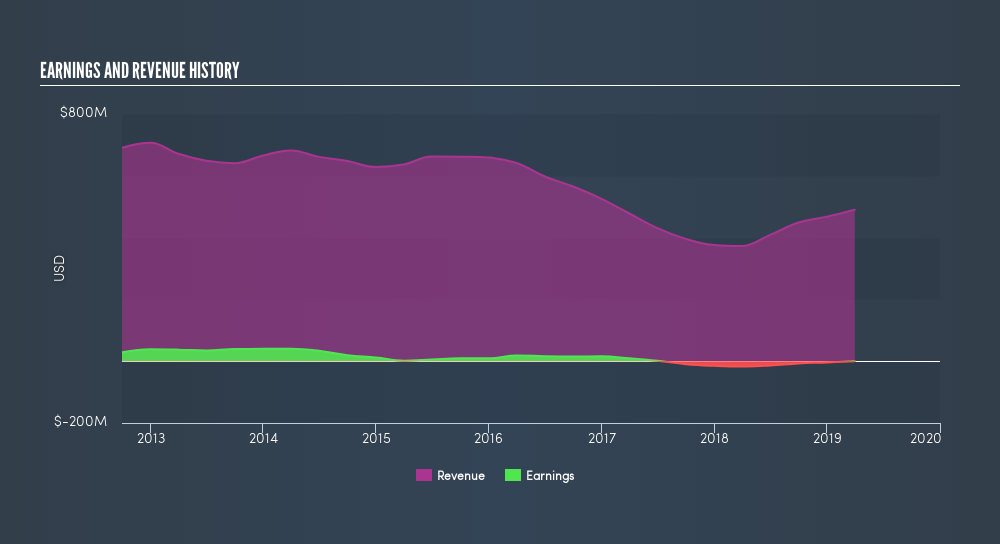- United States
- /
- Electrical
- /
- NasdaqGS:POWL
Powell Industries, Inc. (NASDAQ:POWL): What Does Its Beta Value Mean For Your Portfolio?

Want to participate in a short research study? Help shape the future of investing tools and you could win a $250 gift card!
If you're interested in Powell Industries, Inc. (NASDAQ:POWL), then you might want to consider its beta (a measure of share price volatility) in order to understand how the stock could impact your portfolio. Volatility is considered to be a measure of risk in modern finance theory. Investors may think of volatility as falling into two main categories. First, we have company specific volatility, which is the price gyrations of an individual stock. Holding at least 8 stocks can reduce this kind of risk across a portfolio. The second type is the broader market volatility, which you cannot diversify away, since it arises from macroeconomic factors which directly affects all the stocks on the market.
Some stocks are more sensitive to general market forces than others. Beta is a widely used metric to measure a stock's exposure to market risk (volatility). Before we go on, it's worth noting that Warren Buffett pointed out in his 2014 letter to shareholders that 'volatility is far from synonymous with risk.' Having said that, beta can still be rather useful. The first thing to understand about beta is that the beta of the overall market is one. A stock with a beta greater than one is more sensitive to broader market movements than a stock with a beta of less than one.
Check out our latest analysis for Powell Industries
What does POWL's beta value mean to investors?
Given that it has a beta of 1.21, we can surmise that the Powell Industries share price has been fairly sensitive to market volatility (over the last 5 years). Based on this history, investors should be aware that Powell Industries are likely to rise strongly in times of greed, but sell off in times of fear. Beta is worth considering, but it's also important to consider whether Powell Industries is growing earnings and revenue. You can take a look for yourself, below.

Does POWL's size influence the expected beta?
Powell Industries is a noticeably small company, with a market capitalisation of US$439m. Most companies this size are not always actively traded. Relatively few investors can influence the price of a smaller company, compared to a large company. This could explain the high beta value, in this case.
What this means for you:
Beta only tells us that the Powell Industries share price is sensitive to broader market movements. This could indicate that it is a high growth company, or is heavily influenced by sentiment because it is speculative. Alternatively, it could have operating leverage in its business model. Ultimately, beta is an interesting metric, but there's plenty more to learn. This article aims to educate investors about beta values, but it's well worth looking at important company-specific fundamentals such as Powell Industries’s financial health and performance track record. I highly recommend you dive deeper by considering the following:
- Future Outlook: What are well-informed industry analysts predicting for POWL’s future growth? Take a look at our free research report of analyst consensus for POWL’s outlook.
- Past Track Record: Has POWL been consistently performing well irrespective of the ups and downs in the market? Go into more detail in the past performance analysis and take a look at the free visual representations of POWL's historicals for more clarity.
- Other Interesting Stocks: It's worth checking to see how POWL measures up against other companies on valuation. You could start with this free list of prospective options.
We aim to bring you long-term focused research analysis driven by fundamental data. Note that our analysis may not factor in the latest price-sensitive company announcements or qualitative material.
If you spot an error that warrants correction, please contact the editor at editorial-team@simplywallst.com. This article by Simply Wall St is general in nature. It does not constitute a recommendation to buy or sell any stock, and does not take account of your objectives, or your financial situation. Simply Wall St has no position in the stocks mentioned. Thank you for reading.
About NasdaqGS:POWL
Powell Industries
Designs, develops, manufactures, sells, and services custom-engineered equipment and systems.
Flawless balance sheet with solid track record.
Similar Companies
Market Insights
Community Narratives





